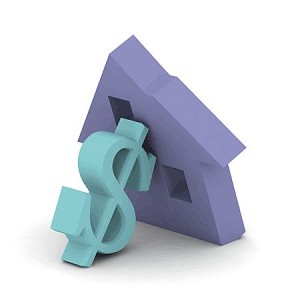 Guys, as the economy improves (if it improves) interest rates will surely rise, as they already are in other countries.
Guys, as the economy improves (if it improves) interest rates will surely rise, as they already are in other countries.
If you haven’t already done so, seriously think about buying some fire-sale real-estate and locking in the the interest rate for 30 years; one strategy – especially if the banks won’t let you take out a 30 year fixed rate mortgage on an investment – is to buy your NEXT home now (it need not be any bigger/better than your current), taking the 30 year fixed on that one, and keeping your current as a rental.
I’m not sure if that’s exactly what Lee was thinking when he asked:
Although the market in our area has held up fairly well through this housing crisis, it’s definitely a buyers market. I don’t think I’d get top value for my home. So, I’ve seriously been considering renting it out after we move. If I did rent it, then I could go a couple different routes:
1. Refinance current home to 30 year (to help cash flow) and take enough cash out to put 20% down on our new home.
2. Refinance current home to a 30 year but take no cash out to get the payment down to a very low amount to have a very good positive cash flow. Then put 20% down out of pocket on the new home.
3. Take out a home equity loan on the current home just to cover the 20% down payment on the new home loan (30 year).
4. Just go ahead and sell our current home so I can take advantage of the tax free capital gains … I could then use part of it to put 20% down on our next home … and use the remaining as a down payment on one or two rental properties.
5. I have to throw in one scenario just because of that little guy I call Mr. Conservative that sits on one of my shoulders, lol! I could just pay my current home off within the next 2 years or so, then rent it out with a large cash flow, and use that cash flow to pay the mortgage of the new home we buy.
6. Maybe something I’m not even thinking of?
I think I see a case of paralysis by analysis coming on, so we had better head this off at the pass …
… while I can’t give direct personal advice (as I told Lee), I can point out that in cases like this it’s always good to ask yourself a couple of key questions before Mr. Conservative starts to get very vocal (in your subconscious) and you end up taking no action at all, so I suggested that Lee run some numbers:
a) What would be the situation on your current home, if you just took out a new (or refi) FIXED rate 30 yr mortgage, and put tenants in … what would be your new monthly mortgage payment and what monthly rent could you conservatively [it’s good to have Mr Conservative on your shoulders] expect?
b) After pocketing the excess of 75% of rents over mortgage from a) above – or, making up the deficit on the excess of mortgage over 75% of the rent – how much per month do you think you could save from your other sources of income assuming for the moment that you have FREE accommodation for yourself somewhere?
[AJC: the 75% of rents is to allow a buffer for vacancies and other costs of renting … just a very rough approx. for now]
Once you answer these two questions, my feeling is that the best scenario for you will become obvious … I hope 🙂
In Lee’s case, here are his current numbers:
3 bed / 2 bath 1450 sq ft. home in a great location.
Cost Basis: $158,000
Current value: $210,000
$96,000 (9 years 6 months) remaining on a 15 yr mortgage @ 4.625%
Current P&I repayment: $1,042 per month
And, if he refinanced the $96k remaining balance his bank has given him two options for a 30-year fixed loan:
$508/month @ 4.875% Closing costs: $2,000
$493/month @ 4.625% Closing costs: $2,700
For rent, Lee thinks “being ultra conservative” $900/month to $1100/month, which means:
Using 75% of excess over mortgage ($300) and assume living in FREE accommodations, I could easily save $3,000/month because that’s what I save currently even with my $1042 mortgage. Throw in not paying our current mortgage and having $300 in additional cash flow and $4,000+/month would not be unreasonable.
For now those are the numbers, although I have to say the 75% of excess over mortgage number is probably high considering taxes and insurance on this place are about $200/month. But as you said, these are rough numbers for now.
So, Lee is getting closer to being able to make a meaningful decision; here are the steps that I suggested:
STEP 1: OK, it seems to me that if you decided to keep your current home as a rental, you would lose money if you stuck to your your current $1k pm mortgage, and produce a positive cashflow of $100 to $200 p.m. if you refinanced.
STEP 2: It seems to me that your $3k pm savings rate will be enough to cover the expected $200k mortgage on your new home. Right? BTW: You WILL fix for 30 years, too (because this will become an ideal 2nd rental, eventually)?
STEP 3: Next, all you need to think about is how to raise the deposit; well, if you don’t have it now, go back to Step 1 and revisit these numbers, assuming that you refi, say, $150k instead of $96k. I’m guessing that you’ll be close to B/E – or, a slight monthly loss – on the rental?
STEP 4: You keep 25% of the rent (plus another $200, say) to cover taxes, ins, and contingencies PLUS you have plenty of excess monthly savings to cover you, until this ‘provisioning fund’ builds up.
Now, what do YOU think Lee should do?! Here’s what he thinks:
I think the smartest thing would be to refi without taking any equity out so that I have a nice cushion of cash flow. I would then need to come out of pocket with the down payment for the new home which I should be able to do, and even if I need a little help, I could always get a small home equity loan on the rental temporarily. But I feel pretty confident I could raise enough cash to cover the down payment without having to do that.
My next step…develop my plan of action.
Take Lee’s advice: model these questions to develop a plan of action that works for you … and, take it! 🙂



 Real-estate development is a risky BUSINESS, but it can be very lucrative and – provided the market doesn’t turn on you, hence the risk – you can predetermine HOW MUCH money you are likely to make and WHEN you can expect to have it sitting in the bank. All in all, not a bad MM201 activity … one that scales from small projects to large ones.
Real-estate development is a risky BUSINESS, but it can be very lucrative and – provided the market doesn’t turn on you, hence the risk – you can predetermine HOW MUCH money you are likely to make and WHEN you can expect to have it sitting in the bank. All in all, not a bad MM201 activity … one that scales from small projects to large ones. These exist all over the world …
These exist all over the world …

 Yes, I have been out shopping …
Yes, I have been out shopping … Today, I want to share one of my secret weapons for purchasing real-estate: it absolutely kills
Today, I want to share one of my secret weapons for purchasing real-estate: it absolutely kills  I have been asked, by way of two comments to this
I have been asked, by way of two comments to this